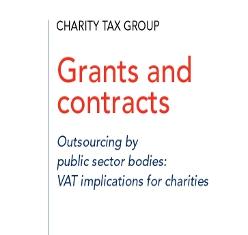The Charity Tax Group has released guidance explaining the VAT consequences of both grants and contracts.
The Group (CTG) stresses that the VAT rules can, in some cases, mean that the choice between a grant and a contract makes a real financial difference to a charity, and so has published Outsourcing by public sector bodies: VAT implications for charities to help charitable organisations make the best choice.
One key point the literature raises is for bodies to be aware of which services are exempt from VAT – such as social welfare care and medical services, the care of children and the elderly, and education. A public body procuring an exempt service from a charity does not pay VAT on the cost of the service; equally the charity cannot recover the VAT on its costs attributable to preparing and delivering the service. This is true whether the public body gives the charity a grant or pays its fees under a contract.
However, for services which are not exempt, the charity’s position is different between grants and contracts. This is because the making of a grant does not count as a business transaction for VAT purposes. The services supplied by the charity using the grant money do not therefore count as a taxable supply, and the charity is not entitled to recover the VAT on its costs attributable to preparing and delivering the service.
John Hemming, chairman of CTG, said: “The Charity Tax Group doesn’t, as a matter of principle, favour contracts over grants or vice versa. Our role is to explain clearly to charities and public sector commissioners what the different VAT implications are of the two methods of funding. It is then for funder and funded to decide which is right in their circumstances.
“Tax-efficiency should not be the determining or the main factor, but it should be one of the factors to be weighed in the balance. We think it would be irrational not to take into account the tax consequences of different funding methods since it might mean that charities were failing to make the most efficient use of their resources. CTG’s new guidance helps charities to go into it with their eyes open.”
Outsourcing by public sector bodies: VAT implications for charities is available here.









